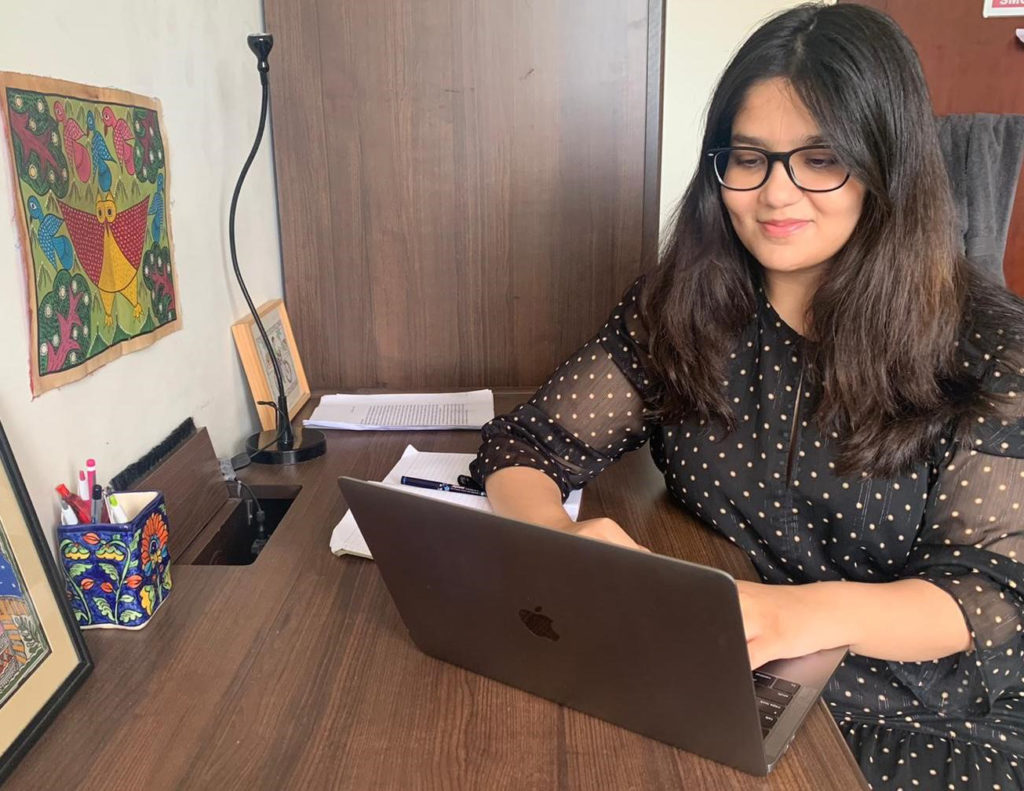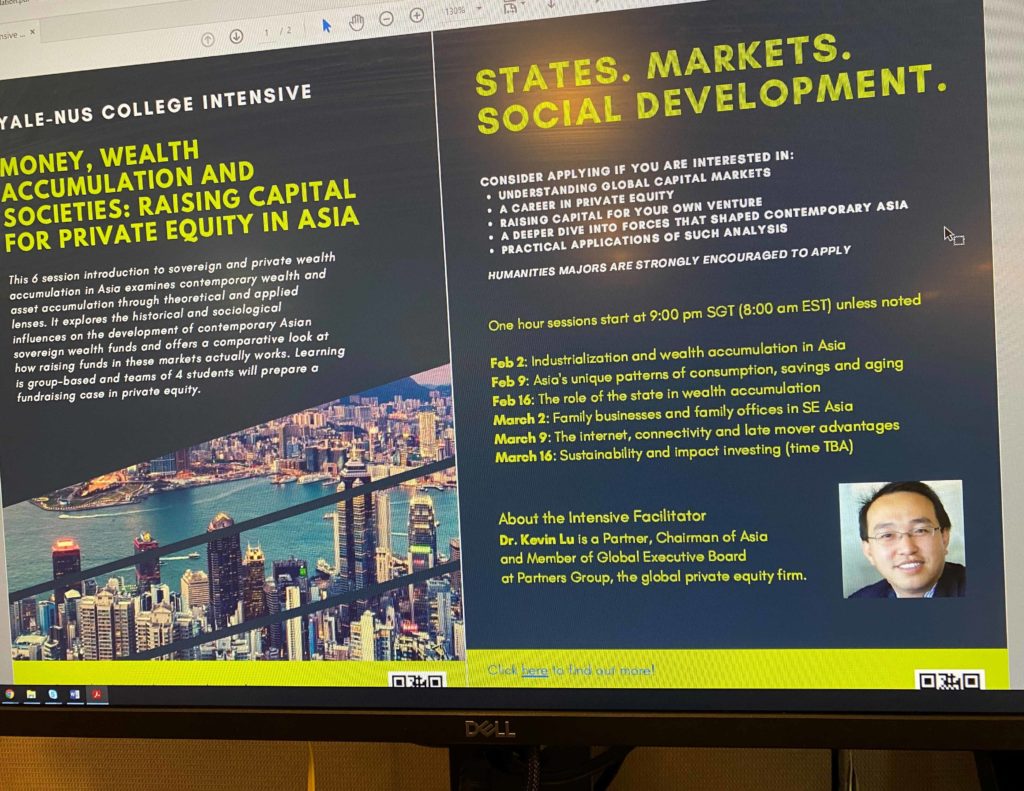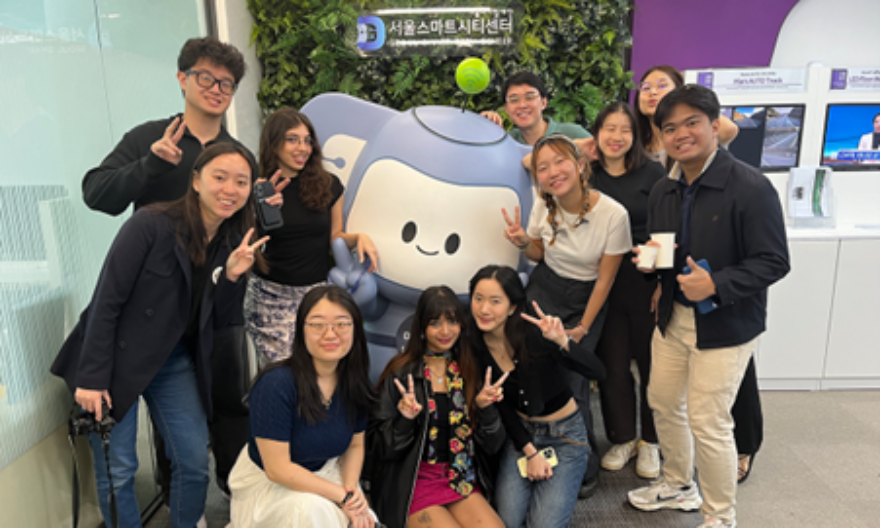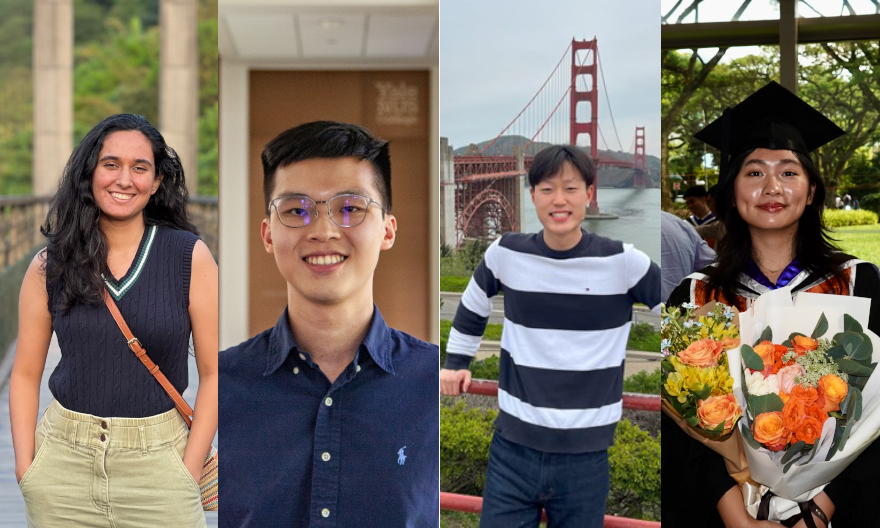Private Equity Intensive: Yale-NUS and Yale students learn about private equity, capital and wealth in Asia from industry leaders
32 students from Yale-NUS College and Yale University participated in ‘Money, Wealth Accumulation and Societies: Raising Capital for Private Equity in Asia’, an Intensive programme organised by Yale-NUS from February to March 2021. The Intensive was a non credit-bearing course that comprised six weeks of online sessions, followed by a case presentation. Conducted virtually by Dr Kevin Lu, Chairman of Asia at Partners Group, the Intensive exposed students from diverse academic backgrounds to private equity and allowed them to learn from industry leaders, such as Mr David Rubenstein, Co-Founder of The Carlyle Group.
 Akanksha Madan (Class of 2023) participating in the Intensive programme via Zoom. Image provided by Akanksha Madan.
Akanksha Madan (Class of 2023) participating in the Intensive programme via Zoom. Image provided by Akanksha Madan.
 Students were introduced to sovereign and private wealth accumulation in Asia through theoretical and applied lenses, over six sessions of the Intensive programme.
Students were introduced to sovereign and private wealth accumulation in Asia through theoretical and applied lenses, over six sessions of the Intensive programme.
As one of the students who had the chance to learn from Dr Lu, I enjoyed the Intensive’s fresh perspective on private equity that deviated from a conventional focus on developed markets and shifted the lens to Asia while also highlighting contemporary trends, like impact investing.
Private equity is the process of investing in or buying private companies.
“The idea of thinking about private equity as influenced by national and regional histories including the legacy of colonialism and demographic patterns, as well as focusing on sustainability and impact investing seemed very aligned with the liberal arts and the interests of our students,” said Dr Trisha Craig, Vice President of Engagement and Senior Lecturer of Social Sciences (Sociology and Political Science) at Yale-NUS College, who put together the Intensive.
Explaining his objectives for the course, Dr Lu said, “I want students to see that lofty topics on societal changes do not belong only to the ivory towers. These topics, if we actually pay attention to them, could have a profound impact on doing business, on managing capital and specifically on private equity fund-raising in Asia. I also want to try to demystify private equity a little bit, especially the less understood capital-raising process where investors commit capital to private equity managers.
Dr Lu added that he wanted students to be able to link these topics to their academic and career pursuits, to what they learn in their politics or sociology courses at Yale-NUS and to what they read in the Financial Times, New York Times, and other media.
We began by understanding the basic nuts and bolts of private equity. To show us what theory looked like in action, Dr Lu ran us through the deck of his own firm, Partners Group.
We learned about big investors, such as sovereign wealth funds, family offices, and banks to understand the capital-raising, or fund-raising, process.
Sovereign wealth funds, like GIC in Singapore, are state-owned investment funds. Family offices are private companies that manage investments and wealth for rich families.
First, we learnt about these big investors on their own. The process of understanding them was inherently tied to wealth accumulation in Asia. Most sovereign wealth funds are in Asia because of the faster rate of wealth accumulation in this region and also because more money is in the government’s hands, as compared to Europe and America.
Next, we connected these investors back to the private equity fund-raising process. We considered how a private equity fund must attune its pitch to appeal to the unique profile of a potential investor.
I had the opportunity to put this into practice through our final project, where we had to develop a mock pitch for PG LIFE, Partners Group’s social-impact focused fund that invests in alignment with the United Nations Sustainable Development Goals (SDGs), to a particular investor.
In addition to the group project, we were also exposed to big societal themes, such as impact investing and sustainability in other sessions. Impact investing is investing not only for financial gain but also for social and environmental impact. I learned what the process of evaluating such an investment looks like, for instance, connecting a private company to the SDGs or considering the potential environmental risk of an investment.
Having interned at a venture capital fund that focuses on empowering women founders, I enjoyed strengthening my knowledge of impact investing and understanding the potential for private equity to create impact-at-scale. Our focus on fund-raising and making an effective pitch was also particularly beneficial to me, given that I saw how start-ups pitch themselves during my internship and am also in the process of developing my own start-up.
I’m also incredibly grateful that Dr Lu used to stay back for 15 minutes after the end of each class to answer our questions. These post-class questions helped me learn from my peers, and I appreciate that I was able to learn from a broad spectrum from students, including those from Yale, who spoke from an American context. Since I’ve also collaborated with Yale students during Tsai Center for Innovation Thinking at Yale’s ‘Innovation from the Inside’ intensive on corporate innovation and public-private partnerships, this course gave me another avenue to work and learn together on common interests.
The cherry on the top of this whole experience was the speakers who came to our sessions. When we were learning about family offices, we had a conversation with Dr James Gifford, Head of Global Impact Advisory at Credit Suisse, who shared his views on how they can invest for impact. Similarly, Mr David Hobson, Head of European Private Equity Funds and Co-investments Group at GIC, spoke on how he evaluates private equity funds as an investor.
Beyond hearing practical views on what we were studying, such intimate conversations allowed us to hear their personal stories and career journeys. I still remember the excitement in the room when Mr David Rubenstein, Co-Founder and Co-Chairman of The Carlyle Group, spoke to us about the start of his own career and gave us career advice.
On a similar note, Dr Craig shared, “To round up the sessions with an extended visit from the legendary David Rubenstein was incredible. That Yale-NUS is able to offer these kinds of experiences is why we do what we do.
His message that the reason to make money is not for personal gain but that it allows you to give back and have an impact and lasting legacy in the world was one I hope participants found inspiring and took to heart.”





